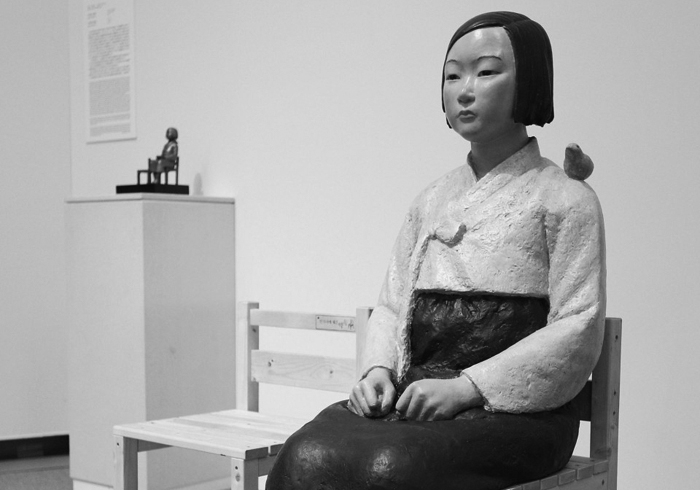The controversy around the alleged censorship of an exhibition, which formed part of the Aichi Triennale, for its inclusion of a ‘comfort woman’ statue continues. Last week it was announced that the arts festival would not received a 78 million yen (approx. £587,000) from the government, due to ‘procedural errors’, The Mainichi reports. The Agency for Cultural Affairs, which administers the grants, said they should have been informed of the contentious nature of the exhibition beforehand. The exhibition, After ‘Freedom of Expression’?, which presented works which had previously been censored in Japan, was closed by the Triennale’s organisers three days after its opening at the Aichi Prefecture Museum of Art in Nagoya. The state subsidy represents about 6.5 percent of the festival’s 1.2 billion yen operating cost. The announcement by the Agency came a day after the governor of Aichi, Hideaki Omura, said the prefectural government was hoping to reopen the exhibit by organising a ‘dispute resolution panel’ between the central and local governments.
The contentious sculpture, Statue of a Girl of Peace by Korean artists Kim Seo-kyung and Kim Eun-sung, was made in reference to the Korean women who were sexually enslaved by the Japanese Imperial Army during the Second World War – euphemistically called ‘comfort women’. Tensions around the subject of comfort women have escalated amid strained diplomatic relations between Korea and Japan.
Read Max Crosbie-Jones’s review of the Aichi Treinnale
30 September 2019
